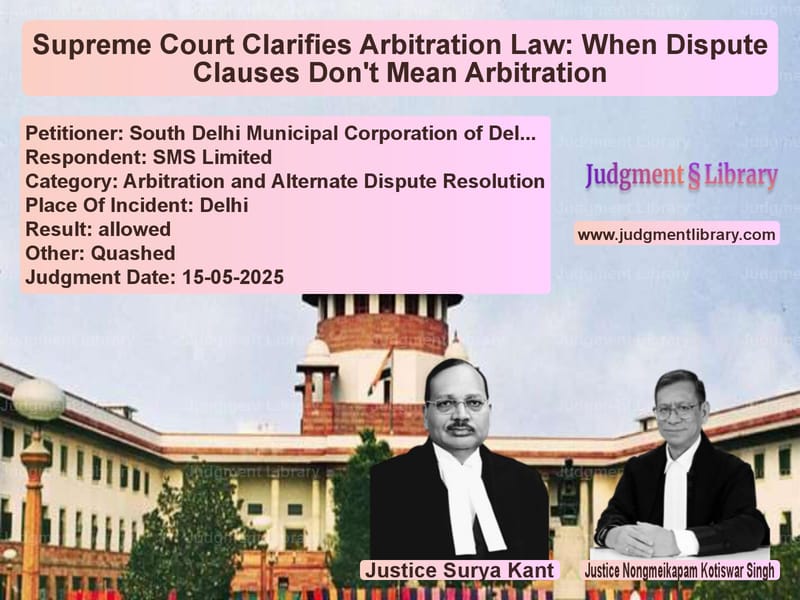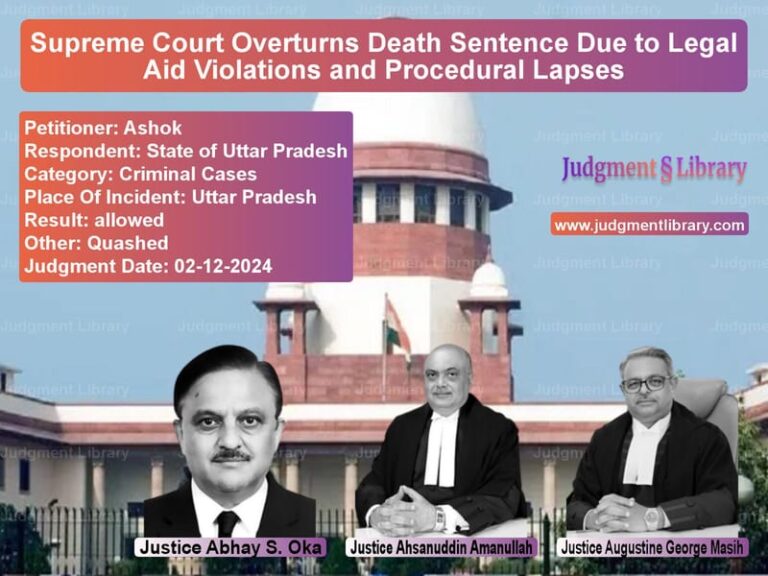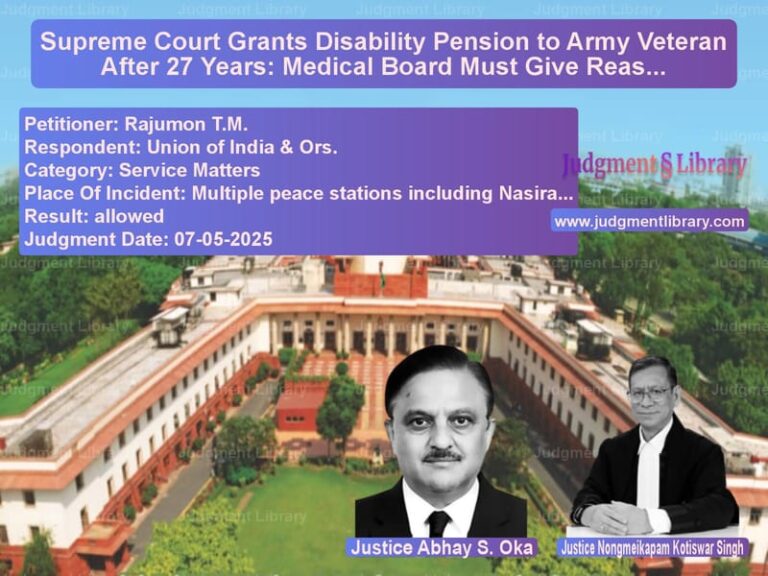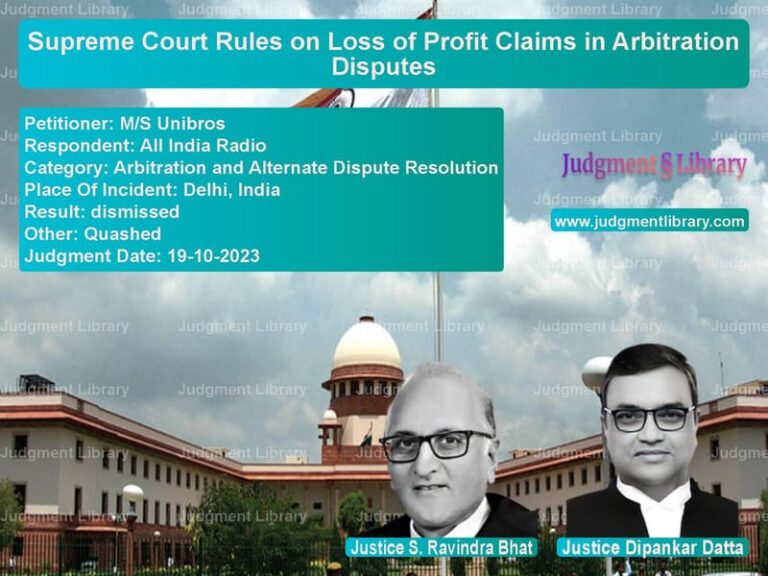Supreme Court Clarifies Arbitration Law: When Dispute Clauses Don’t Mean Arbitration
In a landmark judgment that brings much-needed clarity to commercial dispute resolution in India, the Supreme Court has settled a long-standing controversy about what constitutes a valid arbitration agreement. The case involved three separate disputes between the Municipal Corporation of Delhi and private contractors over parking and commercial complex projects, all revolving around the interpretation of similar dispute resolution clauses in their contracts.
The heart of the matter was whether Article 20 of the Concession Agreements—which all parties had signed—actually created an arbitration mechanism or merely provided for mediation. This seemingly technical question had kept these disputes tied up in litigation for over a decade, with contractors arguing they had the right to arbitration while the Municipal Corporation insisted they didn’t.
The Contractual Disputes That Started It All
The three cases before the Court shared similar stories. In the first case, South Delhi Municipal Corporation had entered into an agreement with SMS Limited in 2012 to build a multi-storeyed parking facility at Defence Colony. When local residents challenged the project and obtained a status quo order from the High Court, SMS Limited sought to terminate the agreement and recover its investments. The company initially acknowledged there was no arbitration clause but later changed its position, arguing that Article 20 actually constituted an arbitration agreement.
The second case involved DSC Limited, which had partnered with the Municipal Corporation for a parking facility in Greater Kailash. When the Corporation terminated the agreement in 2017 and retained most of the performance guarantee money, DSC Limited invoked Article 20 as an arbitration clause to claim approximately 406 crores in compensation.
The third case featured Consolidated Construction Consortium Limited, which similarly found itself in disputes with the Municipal Corporation over a South Extension parking project and sought to invoke arbitration under Article 20.
What made these cases particularly interesting was that different High Court judges had reached opposite conclusions about the exact same contractual language. In the SMS and CCC cases, the High Court found that Article 20 created an arbitration agreement, while in the DSC case, a different judge found it didn’t. This inconsistency made the Supreme Court’s intervention necessary to establish a uniform interpretation.
The Legal Battle: What Makes an Arbitration Agreement?
The Municipal Corporation, represented by Senior Counsel Mr. Sanjiv Sen, argued vigorously that Article 20 did not create an arbitration agreement. He relied heavily on the Court’s previous decision in South Delhi Municipal Corporation v. SMS AAMW Tollways, where a similarly worded clause had been held not to constitute arbitration. “The impugned clauses fail to satisfy the fundamental ingredients of an arbitration agreement,” he argued, pointing out that “Article 20 does not provide for reference to a private tribunal or an independent adjudicator. Instead, it envisages a process controlled by the MCD Commissioner or his appointee, an arrangement that lacks the neutrality and party autonomy inherent in arbitration.”
The Municipal Corporation also highlighted the contractors’ inconsistent behavior. “The conduct of the private contractors further reveals that resorting to arbitration was a mere afterthought,” Sen argued, noting that “In the case of SMS Ltd., the legal notice issued by the contractor expressly sought the initiation of mediation and, significantly, acknowledged that no arbitration agreement subsisted between the parties.”
On the other side, the contractors represented by Senior Counsel Mr. Ritin Rai and Mr. Nakul Diwan, argued with equal vigor that Article 20 clearly intended to create arbitration. “A conjoint reading of Article 20 establishes a clear intent by the parties to refer disputes to arbitration,” they contended, pointing to the fact that “the process is structured and adjudicatory, closely resembling arbitral proceedings, as it involves the submission of written arguments, tendering of documentary evidence, and a binding decision.”
The contractors also made an interesting argument about the Municipal Corporation’s inconsistent positions. “The conduct of the MCD in similar contractual arrangements contradicts its present stance,” they noted, revealing that “In a comparable dispute, the MCD had previously admitted that an analogous clause amounted to an arbitration agreement and even participated in arbitral proceedings, resulting in an arbitral award in its favour.”
The Court’s Detailed Analysis: What Really Constitutes Arbitration?
The Supreme Court began its analysis by examining what exactly makes a dispute resolution clause an arbitration agreement. The Court looked at Section 7 of the Arbitration and Conciliation Act, 1996, which defines an arbitration agreement as “an agreement by the parties to submit to arbitration all or certain disputes which have arisen or which may arise between them in respect of a defined legal relationship.”
The Court then turned to its landmark decision in K.K. Modi v. K.N. Modi, which had established the essential characteristics of an arbitration agreement. Quoting from that judgment, the Court emphasized: “Among the attributes which must be present for an agreement to be considered as an arbitration agreement are: (1) The arbitration agreement must contemplate that the decision of the tribunal will be binding on the parties to the agreement, (2) that the jurisdiction of the tribunal to decide the rights of parties must derive either from the consent of the parties or from an order of the court or from a statute… (3) the agreement must contemplate that substantive rights of parties will be determined by the agreed tribunal, (4) that the tribunal will determine the rights of the parties in an impartial and judicial manner with the tribunal owing an equal obligation of fairness towards both sides…”
After examining these principles, the Court distilled three essential ingredients that must be present for a valid arbitration agreement: clear intent to arbitrate, a binding adjudicatory process, and compliance with arbitration norms.
Why Article 20 Failed the Test
When the Court applied these tests to Article 20 of the Concession Agreements, it found the clauses wanting in multiple respects.
On the question of intent, the Court noted that “A plain reading of Article 20 across all three Concession Agreements does not reveal any express intent to arbitrate.” The Court gave several reasons for this conclusion: “It may be noted that the subject-clause itself is titled as ‘Mediation by Commissioner’, which immediately raises a conundrum as to the mode of dispute resolution… What adds fuel to the fire is the conspicuous absence of the words ‘arbitration’ or ‘arbitrator’ from the dispute resolution clauses. Even the expression ‘Arbitration Act’ is itself entirely missing.”
The Court was particularly concerned about the lack of neutrality in the process. “The appointment of the decision-maker is entirely within the control of MCD, with no role for the other contracting party in selecting or influencing the selection of the officer,” the Court observed, adding that “This further undermines the claim that the clause was intended to establish an arbitration framework.”
On the question of whether the process was truly adjudicatory, the Court found significant deficiencies. Comparing the process to proper arbitration, the Court noted: “It is admitted that there are no provisions for (i) oral hearings; (ii) examination and cross-examination of witnesses; and (iii) application of formal rules of evidence or procedure in the impugned clauses. The appointed officer merely reviews written submissions and, at most, may seek additional documents or conduct interviews.”
The Court saved its strongest criticism for the complete lack of neutrality in the process. “Under Article 20, the decision-maker is an officer of MCD, making the process inherently biased in favour of the Municipal Corporation(s),” the Court stated unequivocally. “It does not even provide for the officer to be a legally qualified adjudicator, further calling into question the nature of the decision-making process.”
The Court concluded its analysis with a powerful statement: “Article 20 lacks the judicial element that lends arbitration its distinct credibility as an adjudicatory mechanism. It is not an arbitration clause either in letter, or in spirit and effect. Its ambiguity and lack of procedural integrity have, if anything, resulted in greater litigation rather than expeditious resolution, thereby undermining the very purpose of arbitration.”
A Broader Message: The Problem with Poor Drafting
Beyond just deciding the specific cases before it, the Supreme Court used this opportunity to send a strong message about the quality of legal drafting in commercial contracts in India.
The Court expressed deep concern about how “the parties in the present cases have spent nigh a decade acrimoniously litigating over the method of dispute resolution itself, while their actual qualms against each other remain deeply buried under the surface—effectively stuck in limbo.”
In a particularly eloquent passage, the Court observed: “A legal dispute that lingers for years over the mere mode of adjudication, before even touching the merits, is akin to a traveller stranded at a crossroads, endlessly debating which path to take while the journey itself remains unbegun. Justice, like the destination, recedes further into the horizon, not for lack of resolution but for want of a decision on how to resolve.”
The Court didn’t mince words in assigning blame for this situation. “This willful and wanton wastage of judicial time is similarly a practice that is highly deplorable, to say the least,” the Court stated, adding that “It is high time that arbitration clauses are worded with piercing precision and clarity, and that they are not couched in ambiguous phraseology.”
In what might be seen as a warning to the legal profession, the Court declared: “We would complementarily urge the Courts to invoke their suo moto powers in appropriate cases wherein legal firms or counsel are found designing ‘arbitration clauses’ which deliberately mislead and misguide. The time is not far when personal liability must be assigned for such unscrupulous acts, along with the sanctioning of the harshest punitive measures against the actors.”
The Final Outcome and Its Implications
In its final decision, the Supreme Court set aside the High Court judgments in the SMS and CCC cases that had found arbitration agreements existed. The Court upheld the High Court’s decision in the DSC case that had correctly rejected the arbitration argument. Most importantly, the Court clarified that “Article 20 of the Concession Agreements executed in all the three appeals before does not form an arbitration agreement, and thus cannot be brought under the purview of the Arbitration Act.”
However, the Court made it clear that the parties weren’t left without remedies. “It is, however, clarified that the parties across all three appeals are at liberty to pursue their alternative remedies in accordance with law,” the Court noted, meaning the contractors could still approach civil courts to pursue their claims.
This judgment represents a significant clarification of Indian arbitration law. It establishes clear principles for distinguishing between arbitration agreements and other forms of dispute resolution. More importantly, it sends a strong message to lawyers and parties drafting commercial contracts: be clear about what you’re creating, or face the consequences of prolonged litigation over the very mechanism meant to resolve disputes quickly.
The case also highlights the importance of neutrality and due process in dispute resolution. A process where one party controls the appointment of the decision-maker and there are no proper hearing procedures cannot be considered true arbitration, no matter what label the parties try to attach to it.
As commercial contracts become increasingly complex and cross-border transactions more common, this judgment provides much-needed guidance on how to draft effective dispute resolution clauses that will actually serve their purpose of providing efficient and fair resolution of commercial disputes.
Petitioner Name: South Delhi Municipal Corporation of Delhi.Respondent Name: SMS Limited.Judgment By: Justice Surya Kant, Justice Nongmeikapam Kotiswar Singh.Place Of Incident: Delhi.Judgment Date: 15-05-2025.Result: allowed.
Don’t miss out on the full details! Download the complete judgment in PDF format below and gain valuable insights instantly!
Download Judgment: south-delhi-municipa-vs-sms-limited-supreme-court-of-india-judgment-dated-15-05-2025.pdf
Directly Download Judgment: Directly download this Judgment
See all petitions in Arbitration Awards
See all petitions in Mediation Cases
See all petitions in Commercial Arbitration
See all petitions in Dispute Resolution Mechanisms
See all petitions in Contract Disputes
See all petitions in Judgment by Surya Kant
See all petitions in Judgment by N. Kotiswar Singh
See all petitions in allowed
See all petitions in Quashed
See all petitions in supreme court of India judgments May 2025
See all petitions in 2025 judgments
See all posts in Arbitration and Alternate Dispute Resolution Category
See all allowed petitions in Arbitration and Alternate Dispute Resolution Category
See all Dismissed petitions in Arbitration and Alternate Dispute Resolution Category
See all partially allowed petitions in Arbitration and Alternate Dispute Resolution Category







